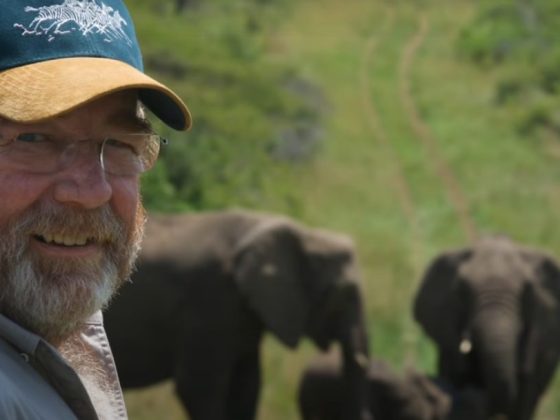A widely known term, at least in academia, is “the tragedy of the commons.” The term “commons” describes a resource that everyone can use at no cost, such as air.
Professor of Law at Harvard Law School Lawrence Lessig explains that the tragedy is that when there is a limited amount of a commons, the competition over it causes its depletion because people work out of self-interest, whereas if they were considerate, everyone would have enough.
Until recently, we thought that we could emit as much gas as we want into the atmosphere without consequences. As a result, we have polluted Earth’s entire atmosphere. We thought we could litter the oceans indefinitely, but we have polluted all of Earth’s oceans. We have depleted Earth’s fresh water reservoirs, contaminated Earth’s soil, and we have turned our entire planet into a barely livable place. We have inflicted a worldwide tragedy of the commons on ourselves, and now we are paying for it. Our last resort is a joint effort to change our behavior, but in order to change our behavior, we will have to change ourselves, from the very foundation of our being.
“Until recently, we thought that we could emit as much gas as we want into the atmosphere without consequences. As a result, we have polluted Earth’s entire atmosphere. We thought we could litter the oceans indefinitely, but we have polluted all of Earth’s oceans. We have depleted Earth’s fresh water reservoirs, contaminated Earth’s soil, and we have turned our entire planet into a barely livable place. We have inflicted a worldwide tragedy of the commons on ourselves, and now we are paying for it. Our last resort is a joint effort to change our behavior, but in order to change our behavior, we will have to change ourselves, from the very foundation of our being.”
Ecologist Garrett Hardin popularized the concept of the tragedy of the commons in an essay titled “The Tragedy of the Commons: The population problem has no technical solution; it requires a fundamental extension in morality.” In his book The Future of Ideas, Lessig quotes Hardin’s explanation: “‘Picture a pasture open to all,’ Hardin writes, and consider the expected behavior of ‘herdsmen’ who roam that pasture. Each herdsman must decide whether to add one more animal to his herd. In making a decision to do so, Hardin writes, the … herdsman gets the benefit of one more animal, yet everyone suffers the cost, because the pasture has one more consuming cow. And this defines the problem: Whatever costs there are in adding another animal are costs that others bear. The benefits, however, are enjoyed by a single herdsman. Therefore each herdsman has an incentive to add more cattle than the pasture as a whole can bear. …Therein is the tragedy. Each man is locked into a system that compels him to increase his herd without limit—in a world that is limited. Ruin is the destination toward which all men rush, each pursuing his own best interest in a society that believes in the freedom of the commons. Freedom in a commons brings ruin to all.”
However, Hardin concludes in his article, “Education can counteract the natural tendency to do the wrong thing, but the inexorable succession of generations requires that the basis for this knowledge be constantly refreshed.”
“Now that we have depleted Earth’s pool of fresh air, fresh water, and sources of food, the scarcity is beginning to take its toll. Allegorically, we have been borrowing from a shop that seemed to have no keeper, but we have been wrong, and now the keeper is collecting the debt.”
Hardin wrote his piece in 1968, when the realization of the toll of humanity’s reckless behavior was in its infancy. Since then, we have not learned any lessons. We did not refresh our education; we never even began.
Earth’s free commons are finite, though we would like to believe the contrary. “Using the commons as a cesspool does not harm the public under frontier conditions because there is no public,” writes Hardin in relation to the early white settlers in the US. But “the same behavior in a metropolis is unbearable.”
Now that we have depleted Earth’s pool of fresh air, fresh water, and sources of food, the scarcity is beginning to take its toll. Allegorically, we have been borrowing from a shop that seemed to have no keeper, but we have been wrong, and now the keeper is collecting the debt.
However, we can avert the emerging catastrophe of depletion. If we (finally) apply the self-education we so badly need to apply, we will find that there is plenty of food, fresh air, and fresh water for all. We are already producing far more than we are consuming. If we had a sense of mutual responsibility, and goods actually went to people who need them, we would reduce production so dramatically that we would not worry about emissions quotas and other limitations.
The root of our problem is not that we are depleting Earth, but that we are trying to destroy or at least control one another. As a result, we inflict on all of nature and on ourselves an existential tragedy.
We will be able to change our modus operandi only if we change our motivation from aiming to destroy others to aiming to build them. When we realize that we can blossom only in a flourishing social environment, we will begin to think about others in constructive and prosocial ways, and then we will transform our world.
This is why today, an educational process of installing the realization that we are all dependent on each other in every way should be the most essential component, the bedrock of any program aimed at mitigating every problem: from depression to deforestation.











